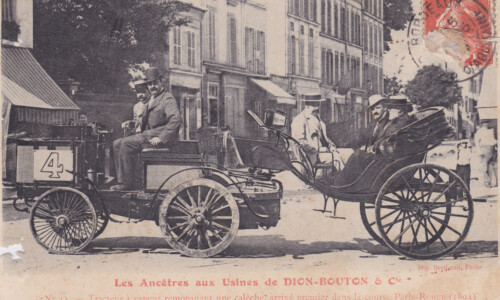The vehicles participating in the annual London to Brighton Veteran Car Run represent an impressive array of manufacturers, body types, means of propulsion, and country of origin, and yet I suspect that we would all have marvelled at the entries received for the Paris to Rouen Trial in 1894. Pierre Giffard, the editor and owner of the French newspaper, Le Petit Journal, decided to stage in France what he believed would be the world’s first motor event. His initial request for entries produced 102 responses from would-be drivers, and he reported that there were “more than twenty different methods of propulsion, including steam power ….new petrol power, compressed air, clockwork, gravity, a system of pendulums, a combination of animate and mechanical power”, and there was the Baricycle, a device propelled solely by the weight of its passengers!
Not surprisingly the organisers decided to scrutinise the applicants, and only 25 vehicles survived the process, and when these chosen few were required to undertake a further test, that of travelling 32 miles in four hours, four more vehicles failed. And so 21 competitors (all with either steam or petrol engines), including an articulated De Dion steam tractor, presented themselves in Neuilly, in preparation for the 80 mile excursion to Rouen.
The De Dion led all the way with Georges Lemaitre in a Peugeot and Emile Levassor in a Panhard hard on its heels. Even though the De Dion left the road at one point and became stuck in a potato field, it completed the journey in the winning time of 6hrs 48 mins, an average speed of 11.66mph. Jubilation was, however, short-lived and the prize money of 5,000 Francs was not awarded to the De Dion, because the judges decided that it had not complied with the spirit of the event – the steam tractor required two operators: a driver to steer and a stoker to feed the engine. On the other hand, the judges were most complimentary about the way the De Dion “develops a speed absolutely beyond comparison, especially when going uphill”.
Perhaps the most significant statistic to emerge from the event was that half the steam driven vehicles failed to finish, whilst all 13 of the petrol driven machines made it to Rouen, a result that clearly did not go unnoticed back in Puteaux!

